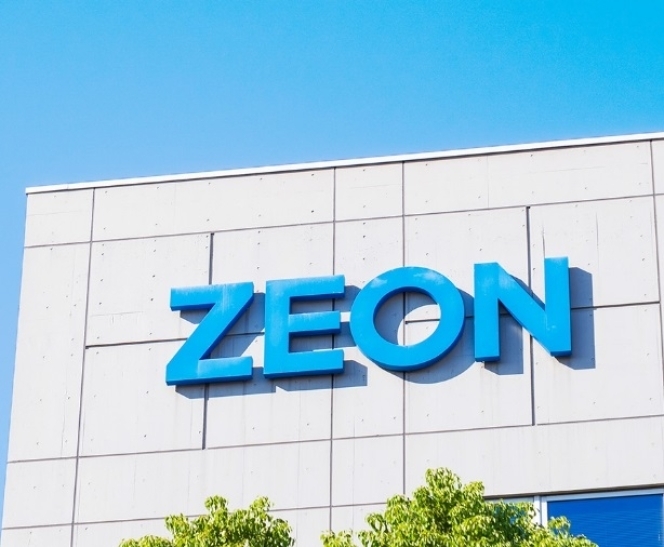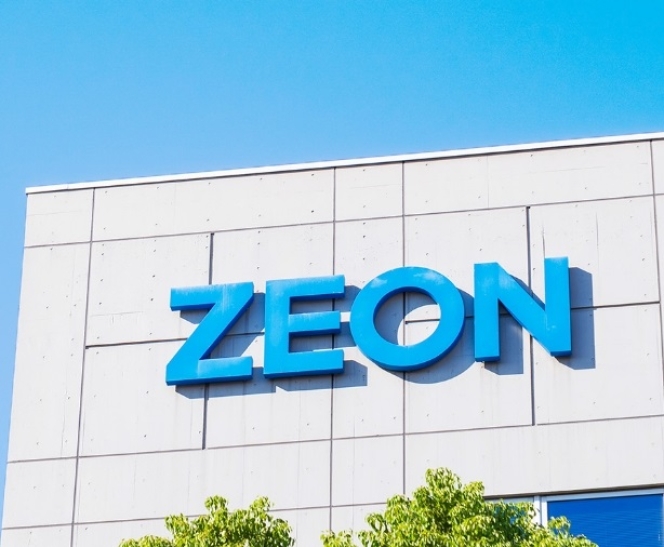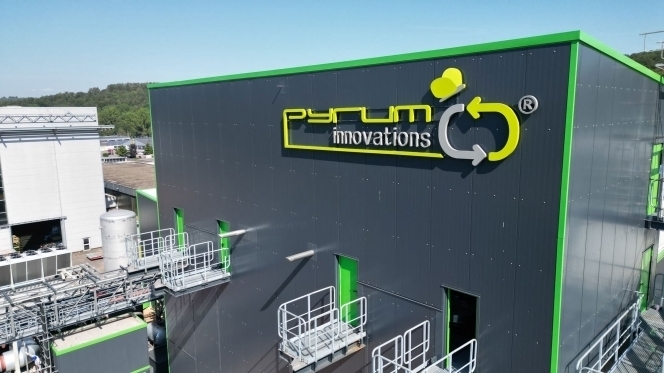Wastefront, Newcastle University Partner for rCB
- By TT News
- July 16, 2022

Wastefront AS has partnered with Newcastle University to study the characterisation and enhancement of Wastefront’s recovered carbon black (rCB).
As one of the UK’s top universities and a world leader in sustainability, Newcastle University’s partnership with Wastefront will see cutting-edge industry innovation emerge from research conceived in the North of England – ensuring the region is at the forefront of progressing circularity across Europe.
The work is timely as Wastefront gears up to play a crucial role in eliminating the UK’s waste tyres export by creating a local, circular solution to a global problem. To prevent waste tyres from burning in cement kilns, Wastefront will use commercial operating technologies to convert end-of-life-tyres (ELTs) into useful commodities, including rCB.
The study will focus on rCB interaction with rubbers and its correlation with prospective industrial applications, directly supporting Wastefront’s efforts to enable the rCB it produces to be used in new products. The scope of work undertaken by Newcastle University over the next 18 months will:
1. Quantify the interaction of the rCB with a set of different solvents with varying degrees of dispersion interaction.
2. Develop methods to better understand the nature of the surface within the rCB material.
3. Investigate applications for the rCB in other materials.
Of significance, within this scope of work, the study will develop methods to reduce inorganic components in rCB, improving its chemical and material properties to ensure Wastefront produces a superior product compared with its rCB competitors. This will include identifying rCB reinforcement in rubber goods.
The team from Newcastle University undertaking the rCB study will be:
• Professor Katarina Novakovic – Principal Investigator, Reader in Polymer Engineering
• Professor Steve Bull – Co-Investigator, Cookson Group Chair of Engineering Materials
• Dr Deepashree Thumbarathy – Post-Doctoral Research Associate, Chemical Engineer
• Dr Tim Blackburn, Business Development Manager
Wastefront CTO, Henrik Selstam, comments:
“Circularity is central to the work Wastefront is undertaking to tackle the scourge of ELTs – and expanding our understanding of recovered carbon black is key to realising this goal. As we continue to grow, so too will the uses and capabilities of the products we produce – none more so than recovered carbon black.
“We are delighted to partner with Newcastle University to further advance the commercial capabilities of recovered carbon black through our joint studies. “Ensuring we can continue to implement our at-scale solution in the UK, Europe and Globally will require the input of leading experts in their fields, so we look forward to working closely with Professor Novakovic, Professor Bull, Dr Thumbarathy and Dr Blackburn in the months ahead.”
Newcastle University Pro-Vice-Chancellor for Research Strategy and Resources, Professor Brian Walker, adds:
“At Newcastle University we are delighted to add this exciting partnership with Wastefront to our portfolio of research that advances sustainable innovation and the circular economy and enables progress towards a net-zero economy. We are especially pleased that Wastefront will promote inclusive economic growth here in the North East, with its roots in the local area and the construction of its new plant at the Port of Sunderland.“
Wastefront uses pyrolytic reactors that utilise thermal depolymerisation known as ‘pyrolysis’ to break down a tyre’s materials at elevated temperatures. By sending tyres through these reactors, recovered carbon black (a substitute for virgin carbon black) is produced, in addition to combustible gas, liquid hydrocarbon, and heat. The carbon black is then washed and milled to upgrade the chemical properties and can be used as a complement to natural rubber in tyre production, mechanical rubber goods or as a filler for plastics.
Once fully operational in 2025, Wastefront’s £100 million tyre recycling plant in Sunderland will produce rCB from a supply of 20 percent of the UK’s yearly total of ELTs. By integrating Wastefront’s rCB into new tyres, the emissions for each tyre subsequently produced will be reduced by 80 percent.
Zeon And Visolis Sign Binding Term Sheet To Advance Bio-Isoprene And SAF Commercialisation
- By TT News
- February 16, 2026

Zeon Corporation and Visolis Inc. have formalised their partnership by signing a binding term sheet, marking a pivotal advancement in the commercialisation of bio-based isoprene monomer and sustainable aviation fuel (SAF).
This collaboration, which now moves from technology verification towards project implementation, is built upon the progress made since their initial memorandum of understanding in March 2024 and the subsequent joint feasibility study announced in April 2025. Bio-based isoprene monomer serves as an essential component in the production of synthetic rubbers and various other materials, while SAF is increasingly recognised as a critical next-generation fuel for reducing carbon emissions within the aviation industry.
The newly established term sheet outlines a foundational agreement on the key elements required for a final investment decision. These include defining the business structure and the respective roles of each company, establishing technology and development strategies and advancing detailed engineering for the proposed production facility. Furthermore, the agreement covers the evaluation of potential sites, the process for engaging with suppliers, securing necessary regulatory approvals and planning the financing pathway.
The envisioned facility is set to commence commercial-scale output after successfully demonstrating mass production capabilities for biomass-based isoprene and SAF, utilising Visolis’ proprietary technology. Both companies are now committed to expediting the path to full-scale production and ensuring a steady supply of these sustainable products to the global market.
Zeon Backs Chemify To Accelerate Digital Chemistry Innovation
- By TT News
- February 12, 2026

Zeon Corporation has deepened its commitment to digital chemistry through a strategic investment and partnership with Chemify Limited, secured via its corporate venture arm Zeon Ventures Inc. Chemify, a growth-stage UK enterprise, is reshaping molecular research by integrating digital tools with automated laboratory systems. Its proprietary Chemputation technology translates molecular targets into executable chemical code, which operates directly on robotic platforms to complete integrated Design–Make–Test–Analyze cycles without manual intervention. This closed-loop automation allows Chemify to explore previously inaccessible areas of chemical space while reducing the timeline from concept to synthesized compound by up to tenfold.
A cornerstone of Chemify’s capability is its recently inaugurated Chemifarm in Glasgow – one of the most sophisticated automated facilities in the world for molecular design and construction. The facility enables accelerated iteration and autonomous synthesis of novel small molecules, converting chemical code into tangible compounds with unprecedented efficiency. These advances are critical for developing functional, synthesisable molecules that can contribute solutions to urgent global issues spanning public health, energy efficiency and environmental protection.
Zeon has been at the forefront of adopting digital methodologies in chemical R&D, recognising their transformative potential from an early stage. This investment is positioned to strengthen Zeon’s internal digital chemistry efforts and catalyse the invention of novel materials capable of addressing complex societal needs. The move aligns with Zeon’s STAGE30 corporate strategy, which targets a rise in revenue contribution from four key growth sectors – Mobility, Healthcare and Life Sciences, Telecommunications and Green Transformation – to 48 percent by fiscal 2028. By backing pioneering enterprises and cultivating advanced materials, Zeon continues to advance its dual vision of a sustainable planet and a secure, progressive society.
- Rubber Board Of India
- Rubber Producers’ Societies
- Sulphur Dusting
- Powdery Mildew
- Rubber Plantations
- Rubber Board Subsidy
Rubber Board Announces Sulphur Dusting Subsidy For Rubber Producers
- By TT News
- February 09, 2026

The Rubber Board of India has announced the opening of an application window for financial aid for sulphur dusting to combat powdery mildew disease in rubber plantations for the year 2026. The scheme is open to all Rubber Producers’ Societies (RPS) operating in both traditional and non-traditional growing regions.
From 10 to 20 February 2026, eligible societies must submit their applications online through the 'ServicePlus' portal on the official Rubber Board website. Societies requiring help with the submission process are advised to contact their nearest Rubber Board regional office or field station, or to consult the board's website for further guidance.
French Recognition Of TPO Bolsters Pyrum's Circular Economy Model
- By TT News
- February 09, 2026

Pyrum Innovations AG has welcomed the official recognition by French authorities on 17 January 2026, which classifies tyre pyrolysis oil (TPO) as a legitimate raw material for the chemical sector. This pivotal regulatory milestone for pyrolysis oil derived from end-of-life tyres substantially enhances the product’s integration into established chemical value chains. It also provides greater predictability for future purchase and partnership frameworks, thereby accelerating the development of industrial material cycles.
For Pyrum, which processes scrap tyres through pyrolysis to recover pyrolysis oil, industrial carbon black and steel, this decision underscores the critical need for standardised and reliable regulatory conditions. Such clarity is fundamental for scaling investments, production volumes and supply chains, particularly as the chemical industry and circular economy converge. The establishment of clear product categories is essential to ramp up the market for high-quality recycled raw materials.
The company remains committed to tracking further developments in France and the wider European dialogue regarding the classification and application of recycled feedstocks. Pyrum’s overarching objective is to expand industrial-scale recycling solutions for scrap tyres. This regulatory progress directly supports the company’s mission to secure long-term, quality-assured supply agreements with partners across the chemical industry, thereby advancing a more sustainable and circular economic model.
Pascal Klein, CEO, Pyrum Innovations AG, said, “The decision in France is an important step for the industrial use of pyrolysis oil from waste tyres. It supports a trend that we are seeing in many markets, where the chemical industry is seeking reliable, technologically robust and clearly classified alternative raw materials.”







Comments (0)
ADD COMMENT